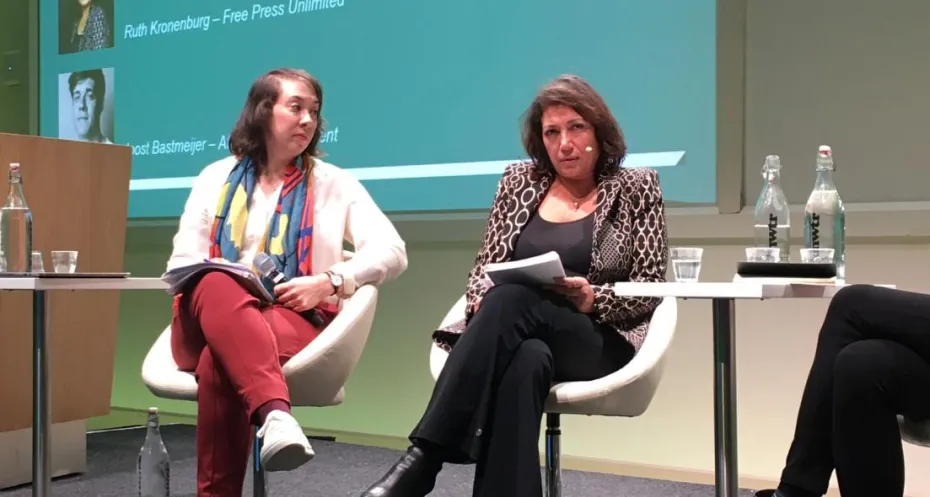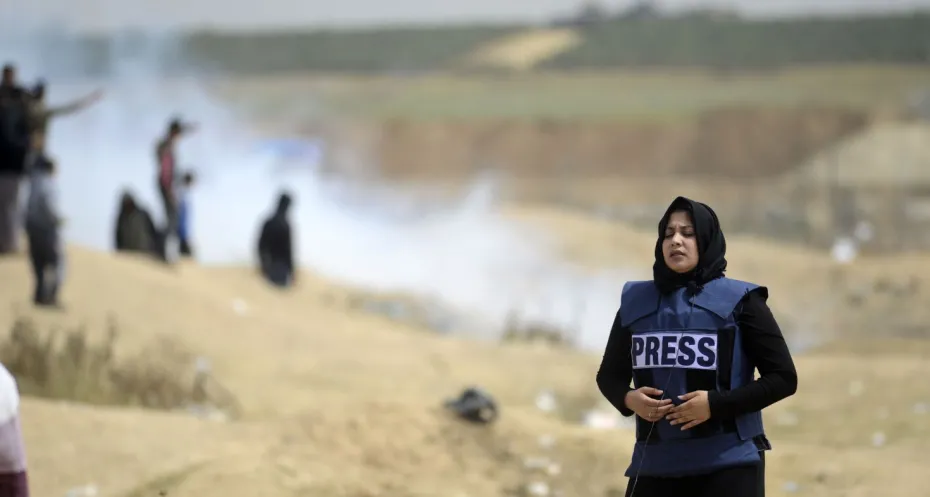"Climate journalism is crucial for a just transition towards a sustainable future”

Says Ruth Kronenburg, Executive Director Free Press Unlimited, at the 8th annual International Human Rights Conference of ABN AMRO on 9 December 2022. The event was dedicated to the ‘Just Transition’ and the role companies can and need to play. Ruth Kronenburg took part in one of the panels to talk about the role climate journalism plays.
As the (predicted) impact of climate change worsens, it has finally become a bigger issue on the agenda of world leaders. The plans to limit global warming become more concrete and more widely accepted. A just transition to a more sustainable society is one of the greatest challenges the world faces right now. As Diederik Samsom, who works on the European Green Deal and the EU’s first Climate Law under Executive Vice-President Frans Timmermans, said in his opening speech: “We need to go far quickly. And we want everyone to come along, leave no one behind.” This is what the just transition entails, protecting our climate while preventing and carefully addressing adverse human rights impacts. It’s about a fair green future for all.
Climate journalism
As Free Press Unlimited we see the crucial role that journalism on climate issues and its social impact plays, and therefore how important it is to support climate journalism, and protect the journalists that report on these issues. Because it is dangerous.
Ruth Kronenburg: “Especially in developing countries, reporting on environmental issues and climate change is the second most dangerous job, after covering armed conflict. Journalists that cover deforestation, poaching, illegal mining. Since 2009, over 200 journalists were killed because of their reporting on these issues. RSF stated that every year at least two climate journalists are killed.”
But it is not just killings, journalists are also harassed and jailed. Kronenburg shared an example: “One Liberian journalist who covered an environmental issue was sentenced to 5000 years. Only thanks to international pressure he was released after a couple of months.”
Talking about and getting involved in the sustainable transition can be a profitable thing here in the west nowadays. “We need to realise that whenever there is big business, there will be corruption and human rights violations. And that’s where journalism comes into play, because they can expose these violations. That is their job, they hold power holders to account,” says Kronenburg.
Work together
Journalists are not a threat but a necessity to take care of the ‘just’ in the just transition. Therefore, they need to be enabled and protected to fulfill their crucial role. “By publishing about these violations they become a catalyst for change,” says Kronenburg. “In Bangladesh Free Press Unlimited trained journalists in the Delta region where they are facing floods. By training them on this topic, they know how to report on it and warn people in the region, saving thousands of lives.”
Working together in this is very important. The media cannot operate alone. As Kronenburg says “They need input from authorities, science, the public, which can then create a driving change so people understand the risks of, for example, building houses on river banks. We need to bring people together, then we can make a positive change.”
We hope to find partners in companies and financial institutions to work together on a just transition by supporting climate journalism. Go to our Corporate Sponsor page for more information or contact us directly to talk about the possibilities there are for companies.
Janine van Doorn, associate Donor Relations
+31(0)6 821 280 36
jvandoorn@freepressunlimited.org



